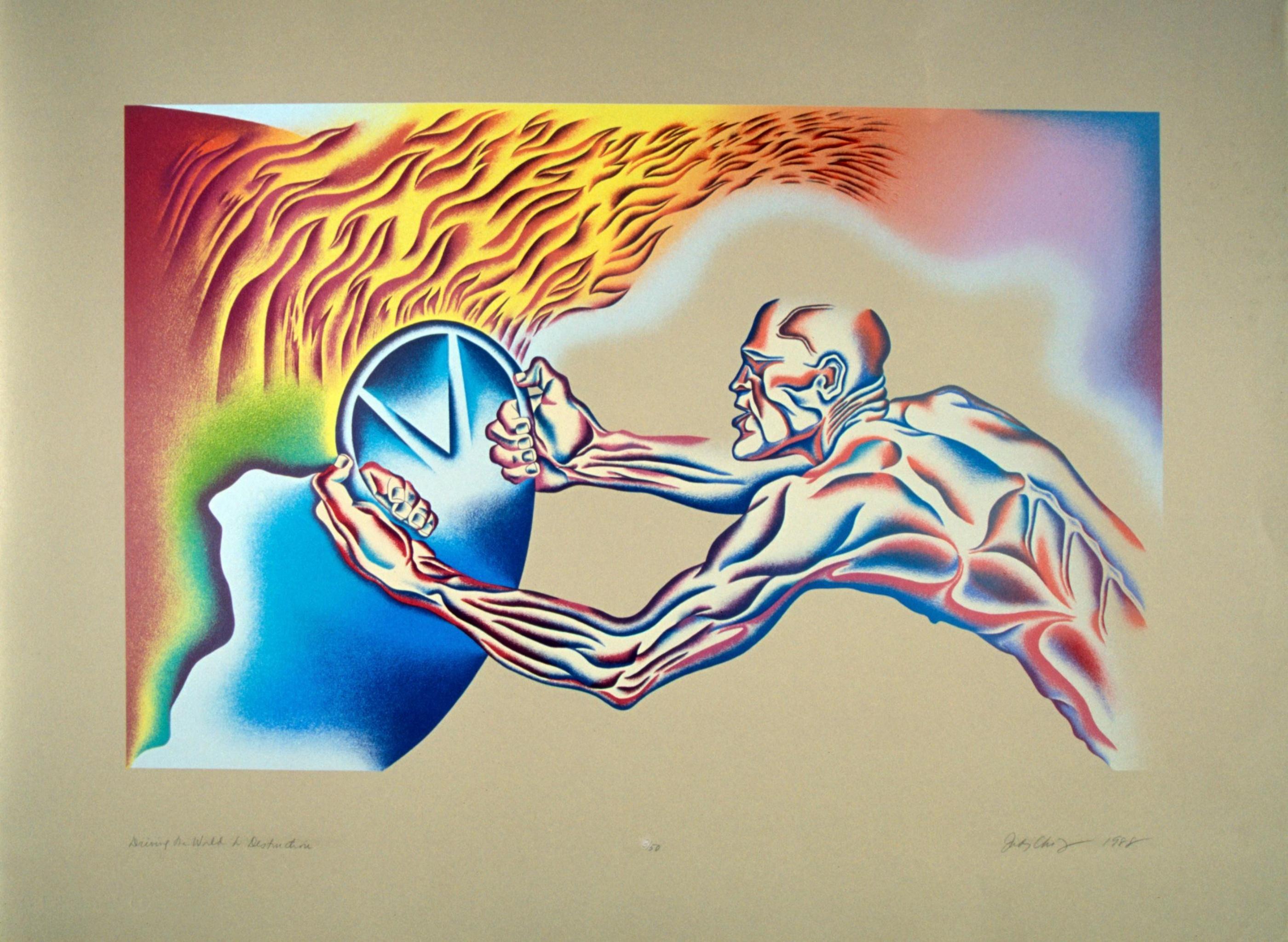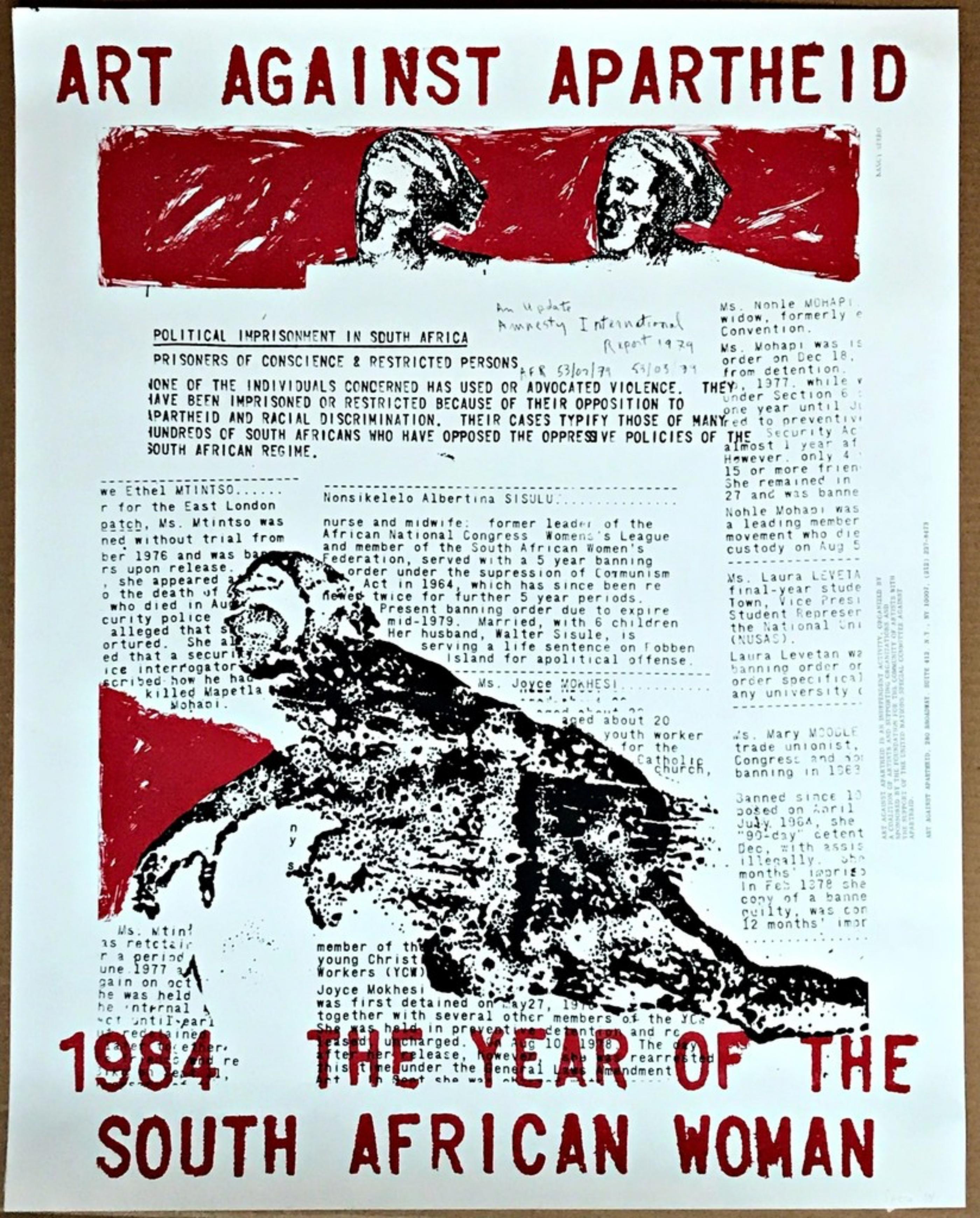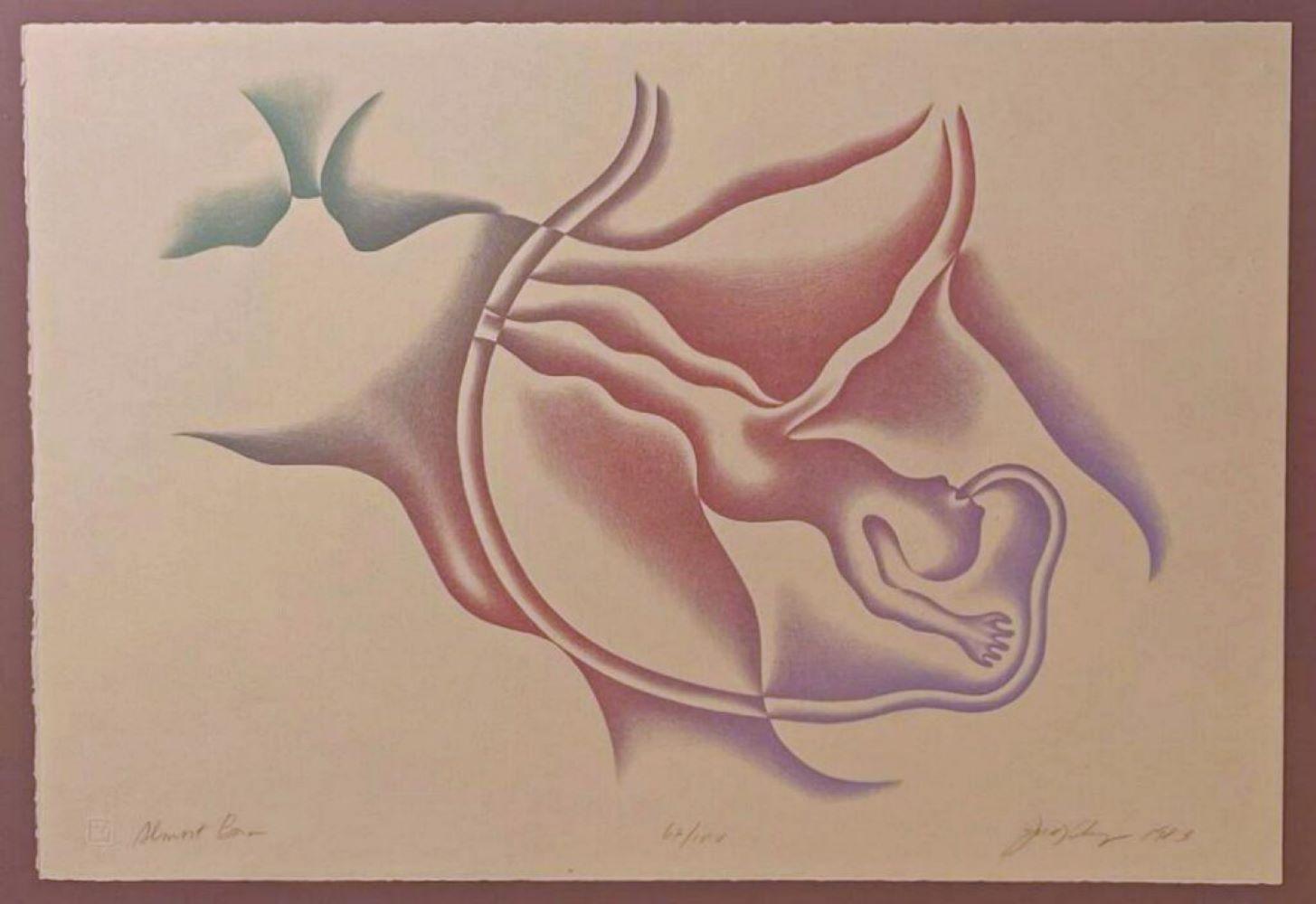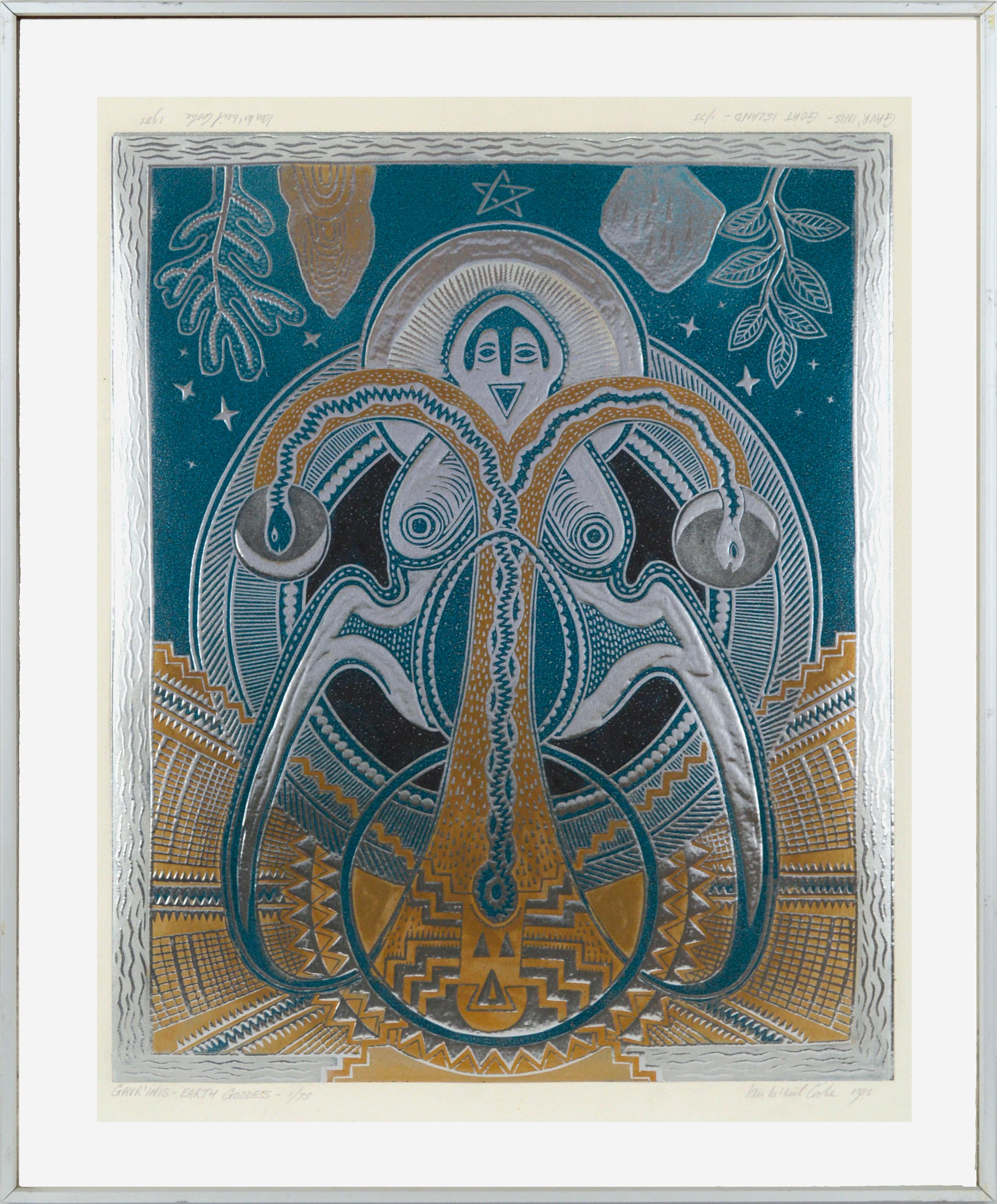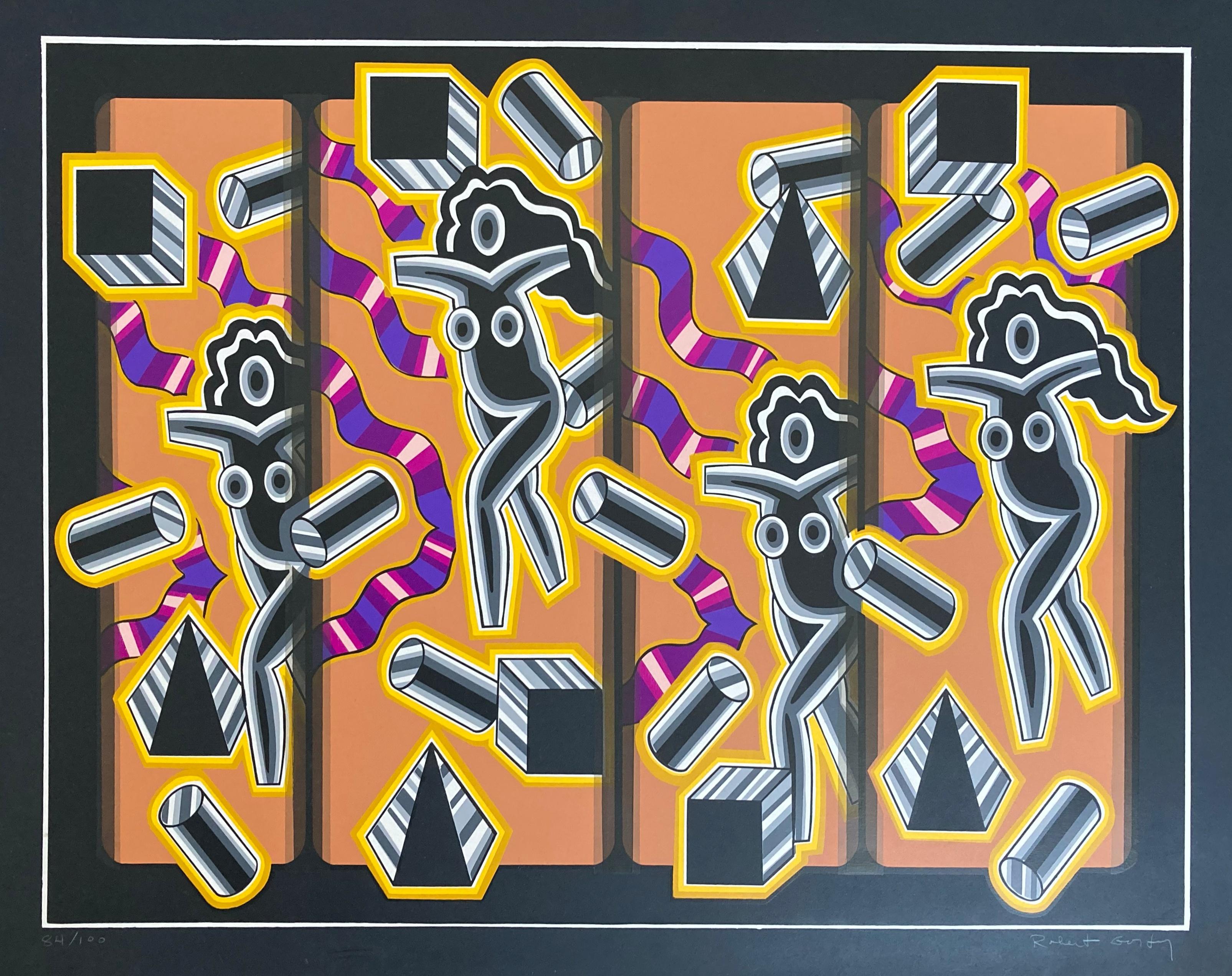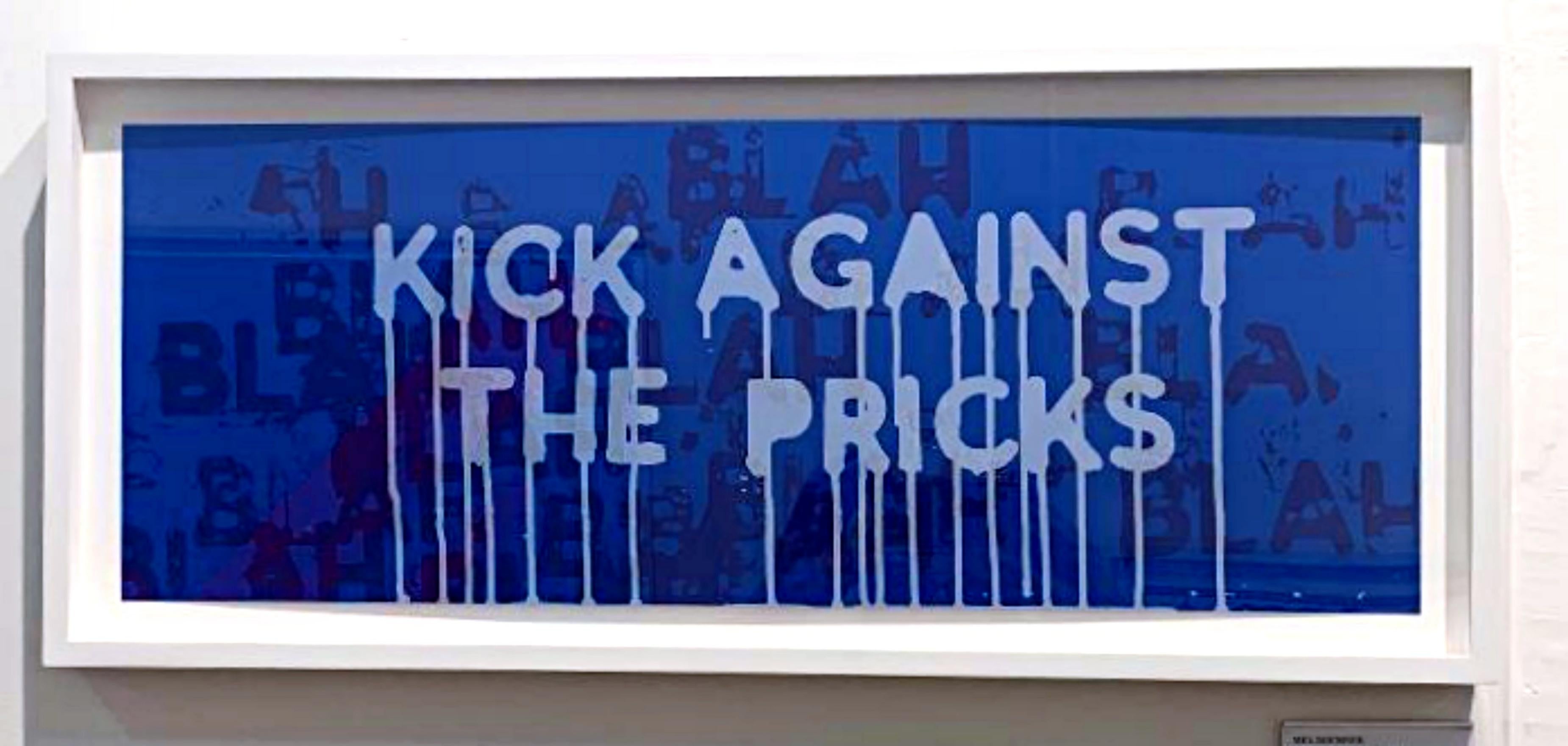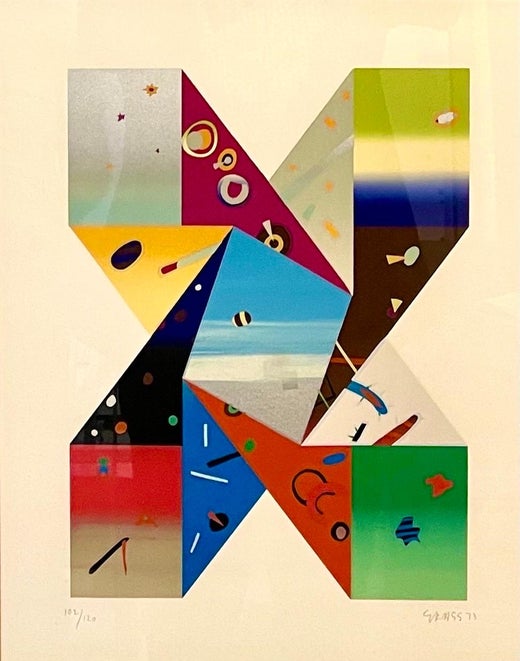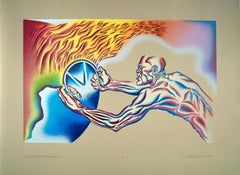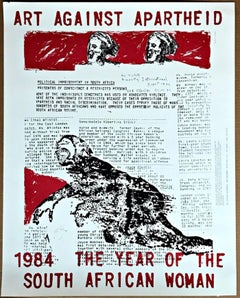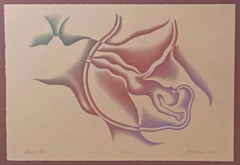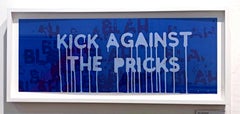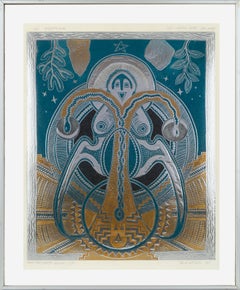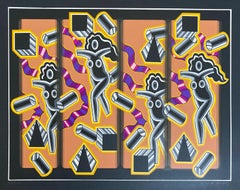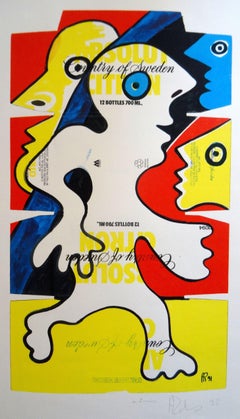Deborah KassMake Me Feel Mighty Real2011
2011
About the Item
- Creator:Deborah Kass (1952, American)
- Creation Year:2011
- Dimensions:Height: 23.5 in (59.69 cm)Width: 18 in (45.72 cm)
- Medium:
- Movement & Style:
- Period:
- Condition:
- Gallery Location:New York, NY
- Reference Number:1stDibs: LU1745212726622
Deborah Kass
Deborah Kass made her name in the late 1980s and early ’90s riffing on postwar greats from Jackson Pollock and Robert Rauschenberg to, most famously, Andy Warhol, giving their signature styles her own brand of feminist cheekiness.
The daughter of a dentist whose passion was playing jazz sax, Kass grew up in Rockville Centre, Long Island. When she was old enough, she would use her babysitting money to take the train to Manhattan and roam the Museum of Modern Art, where she noticed a dearth of female artists, but “it didn’t stop me from falling in love with Cézanne or Stella or Warhol,” she says.
After attending the Whitney Museum Independent Study Program and earning a BFA at Carnegie Mellon University in 1974, Kass hightailed it back to New York, where she concentrated on Expressionistic landscapes. “There was no shortage of women painters or women artists,” she recalls. “That’s what people were looking at. The zeitgeist was about feminism and women.” Yet when the Reagan Era hit, as Kass sees it, women were shunted aside.
Kass responded with mash-ups of male-dominated art history, references to other female artists and her own imagery. Then came the “Warhol Project.” In 1991 she made Before and Happily Ever After, which paired Warhol’s painting of a woman pre- and post-nose job with a close-up of the prince placing the glass slipper on Cinderella’s foot. There were her “Barbras” in profile — her Warholesque silk-screen series of Barbra Streisand — which she dubbed “The Jewish Jackie Series,” as well as more self-portrait parodies, including “The Deb Suite,” a takeoff of Warhol’s Elizabeth Taylor series.
Kass was deeply influenced by Warhol himself — a gay Catholic who sought acceptance in the culture — as well as Cornel West, Elaine Showalter and other theorists in black and feminist studies. “I thought Jewishness belonged in the discourse of multiculturalism,” she says. “Barbra was a celebration. I was tired of talking about my absence. I wanted to talk about my presence.” That her work, aimed at heralding women’s contributions, relies to a large extent on those of men does not bother her. She sees no need to downplay the men in order to give the women a shout-out. The men she references “deserve to be on pedestals. These are artists I love,” she says. The problem is not their inclusion in the canon but rather what she calls the “omissions.”
In 2002, Kass began “Feel Good Paintings For Feel Bad Times,” text-centric, graphically rendered canvases that play her emotions and politics off her love of popular culture, particularly Broadway. Works include Oh God I Need This Show (which references A Chorus Line), If I Were a Wealthy Man (Fiddler on the Roof), Nobody Puts Baby in a Corner (Dirty Dancing) and Sing Out Louise (Gypsy). Kass’s signature paintings, done primarily in the 1990s and often riffing on the imagery of Warhol, came together in “My Elvis+” at New York’s Paul Kasmin Gallery in 2013.
The Kasmin show came on the heels of Kass’s first museum retrospective, which was well received at the Andy Warhol Museum in Pittsburgh in 2012. One critic wrote that she “pays affectionate homage . . . to an art-world society with which she maintains a close bond, even as she castigates it for sins and omissions.” Another compared her to Virginia Woolf.
Find a collection of Deborah Kass prints, paintings and other art on 1stDibs.
- ShippingRetrieving quote...Shipping from: New York, NY
- Return Policy
More From This Seller
View All1980s Feminist Figurative Prints
Screen
1980s Feminist Abstract Prints
Giclée
1980s Feminist Figurative Prints
Lithograph, Pencil
2010s Contemporary Abstract Prints
Screen
1970s Pop Art Abstract Prints
Screen, Pencil, Graphite
Early 2000s Realist Figurative Prints
Metal
You May Also Like
1980s Other Art Style Abstract Prints
Paper, Screen
1980s Abstract Figurative Prints
Screen
1990s Symbolist Figurative Prints
Paper, Screen
1980s Contemporary Figurative Prints
Screen
1970s Abstract Expressionist Abstract Prints
Paper, Printer's Ink, Screen
2010s Contemporary Figurative Prints
Paper, Screen
